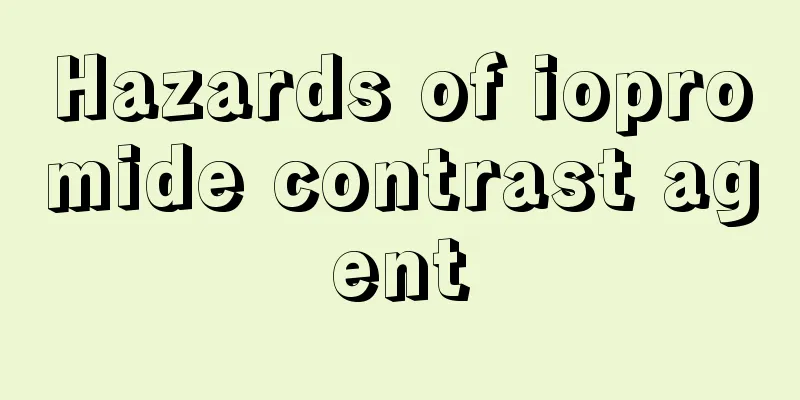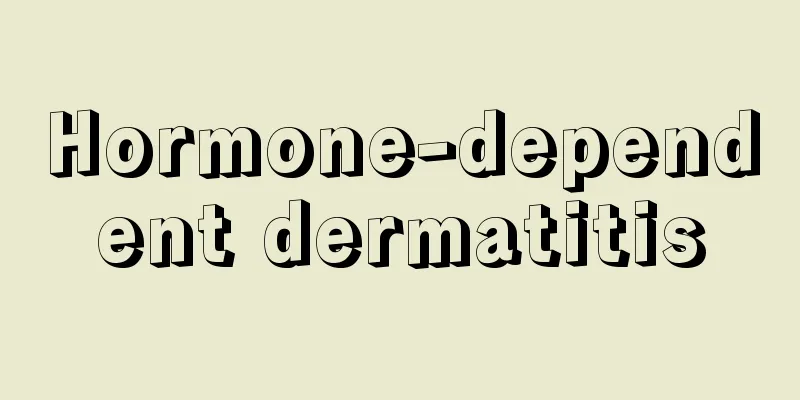Hazards of iopromide contrast agent

|
Iopromide contrast agent is a contrast agent used when performing arterial angiography or venography on patients. From a clinical point of view, it is particularly suitable for cardiovascular angiography and can make the examination results clearer. However, it also has a bad side and can cause certain harm to patients. For example, some patients may experience cerebral infarction, arrhythmia, heart failure, and even shock and death. It can be seen that once these abnormalities occur, they must be treated as soon as possible. 1. Indications of iopromide contrast agent For diagnostic medication. Iopromide injection 300 (iodine concentration 300mg/ml) is used for intravascular and body cavity administration. Contrast-enhanced computed tomography (CT), arteriography and venography, arterial/venous digital subtraction angiography (DSA), intravenous urography, endoscopic retrograde cholangiopancreatography (ERCP), arthrography, and other body cavity examinations cannot be used intrathecally. Iopromide injection 370 (iodine concentration 370 mg/ml) is used for intravascular and body cavity administration. Computerized tomography (CT) enhancement, arterial and venographic angiography, arterial/venous digital subtraction angiography (DSA), especially suitable for cardiovascular angiography, intravenous urography, endoscopic retrograde cholangiopancreatography (ERCP), arthrography and other body cavity examinations, cannot be used within the sheath. 2. Hazards of iopromide contrast agent The most serious adverse drug reactions occurring in patients taking this product (with life-threatening and/or fatal case reports during clinical trials or post-marketing surveillance) include: anaphylactic shock, respiratory arrest, bronchospasm, laryngeal edema, pharyngeal edema, asthma, coma, cerebral infarction, stroke, cerebral edema, convulsions, arrhythmia, cardiac arrest, myocardial ischemia, myocardial infarction, heart failure, bradycardia, cyanosis, hypotension, shock, dyspnea, pulmonary edema, respiratory insufficiency and aspiration. 3. Contraindications of using iopromide contrast agent It is contraindicated in patients who are allergic to iodinated contrast media or have significant hyperthyroidism. Hysterosalpingography is contraindicated in pregnant women and patients with acute pelvic inflammatory disease. ERCP (endoscopic retrograde cholangiopancreatography) is contraindicated in patients with acute pancreatitis. Contraindicated for intrathecal injection. Intrathecal administration may result in death, convulsions, cerebral hemorrhage, coma, paralysis, arachnoiditis, acute renal failure, cardiac arrest, seizures, rhabdomyolysis, hyperthermia and cerebral edema, chemical meningitis, and meningitis pseudoepilepticus. |
<<: Hazards of iohexol contrast agent
>>: Laparoscopic sleeve gastrectomy
Recommend
Does pain in the liver area necessarily mean liver cancer? Doing these two tests can diagnose liver cancer the fastest
Does liver pain mean liver cancer? Experts say th...
What are the benefits of washing your face with pure milk
Milk is closely related to our daily life. Quite ...
The second-hand goods you don't want become treasures in other people's hearts
There are many goods in our lives that are ignore...
What are the benefits of eating apples for pregnant women?
There is a proverb in the West: An apple a day ke...
How should the elderly deal with gastric cancer
Gastric cancer patients over 60 years old are gen...
Why do armpits sweat in winter?
Summer is a season when it is very easy to sweat....
Is it normal for milk powder to have a shelf life of three years?
Many parents are troubled about what kind of milk...
Adding one hole to a belt shortens its lifespan by one year
Due to the modernization of lifestyle and the ris...
Does eating fish reduce the risk of liver cancer? Precautions for preventing liver cancer
Japanese researchers successfully create human li...
How to make baby lithospermum oil
After the baby is born, the skin is very delicate...
What should we pay attention to when we have coronary heart disease?
We are not unfamiliar with coronary heart disease...
Can laryngeal cancer recur after complete resection
Can laryngeal cancer recur after total resection?...
Thumb tendon rupture
The rupture of the thumb tendon is a serious cond...
Types of hand warmers, principles of hand warmers
Hand warmers are a common heating product. Becaus...
Why do I get diarrhea so easily?
In ancient China, as medical technology was not w...









